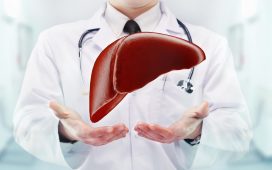Findings observed in Swedish cohort of premature infants born between 1973 and 1997
TUESDAY, Oct. 22, 2019 (HealthDay News) — Most persons born preterm in Sweden between 1973 and 1997 survived until early to mid-adulthood without major comorbidities, according to a study published in the Oct. 22/29 issue of the Journal of the American Medical Association.
Casey Crump, M.D., Ph.D., from the Icahn School of Medicine in New York City, and colleagues examined the prevalence of survival without major comorbidities among all 2,566,699 persons born in Sweden from Jan. 1, 1973, through Dec. 31, 1997, with follow-up through Dec. 31, 2015.
The researchers found that 5.8 percent of the study population was born preterm. At the end of follow-up, 54.6 percent of those born preterm were alive with no Adolescent and Young Adult Health Outcomes and Patient Experience comorbidities. The prevalence was 22.3, 48.5, 58.0, 61.2, and 63.0 percent for those born extremely preterm, very preterm, late preterm, early term, and full term, respectively. These prevalences were significantly lower for earlier gestational ages versus full term (adjusted prevalence ratios, 0.35 for extremely preterm and 0.86 for all preterm). The corresponding prevalences were 73.1, 32.5, 66.4, 77.1, 80.4, and 81.8 percent for all preterm, extremely preterm, very preterm, late preterm, early term, and full term using the Charlson Comorbidity Index (adjusted prevalence ratios, 0.39 for extremely preterm and 0.89 for all preterm).
“The relatively high prevalence of this outcome reflects not only the treatment advances that have occurred over the past 50 years but also the apparent resilience of preterm survivors in maintaining good health,” the authors write.
Copyright © 2019 HealthDay. All rights reserved.








